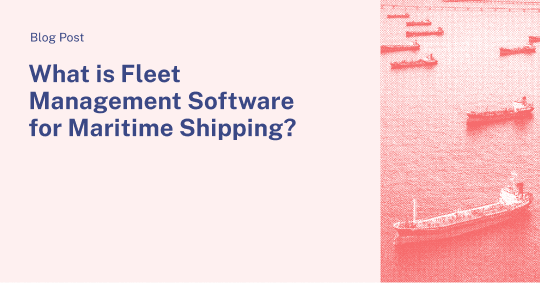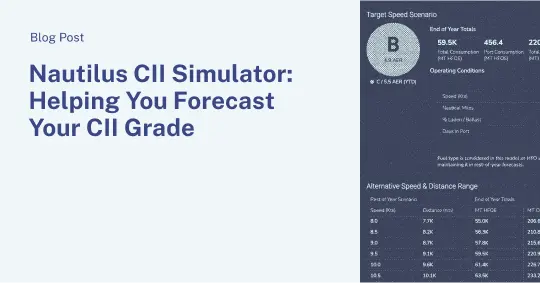Even before the turmoil of the COVID-19 health crisis and the global recession that has followed,
the business of maritime shipping has evolved in recent years, pushing shipping leaders to adapt. Historically, ship owners relied on the patient asset-play strategy whereby a firm acquires assets, and then treads water until a cyclical upswing produces improved returns. The value of this strategy has been eroded by greater global competition, increasing macroeconomic volatility, stringent environmental regulations, stiffer capital access requirements—not to mention a recurring pattern of black swan events.
Today the market paradigm has shifted to a focus on generating higher asset yield across the industry. To outperform in this new context, global shipping leaders partner with Nautilus, as they strive for operational excellence to enhance commercial performance and increase asset yield. And for most shipping companies there is one simple truth: operational excellence demands business transformation.
Business transformation sounds intimidating, but for most high-performing companies it’s a (necessary) evolution.
The drive for asset yield compels owners and operators to examine operational efficiency at every level—and change the way their teams work together globally. We break down the fundamentals of operational excellence into three key areas.
The first is data driven decision-making—meaning that you use all available data to make all your decisions. The second is building a foundation of transparency and accountability inside the business, to improve performance internally and to build trust externally with stakeholders and counterparties. Finally, and perhaps most importantly, is a systematic focus on outcomes that ultimately produce the best economic return for a vessel over the course of its operating life.
Moving from intuition and instinct to advanced decision support.
Shipping has been foundational to the way civilization has evolved over millennia. Considering that, it’s prone to accept that status quo—if it ain’t broke, don’t fix it—and a reliance upon an individual’s experience being the basis of future decisions. The reality is that this often produces inefficiency, through wrong, delayed, or incomplete decisions being made in silos across a shipping company. For our clients, evolution starts with what our users always ask for first—‘give me the insight I need, when I need it, and make it easy for me to use that information to make a decision.’
Yet shipping businesses struggle to empower their teams in this way due to disconnected data and systems internally. Most teams aren’t able to use “all available data to make all decisions”—whether through lack of availability, limited trust, or unsupportive culture. This leads to an over-reliance on the status quo, and falling back on intuition and instinct. For many companies, data-driven decision-support remains the foundational missing piece to help shipping businesses win- and it requires a software partner to bring it to fruition.
Transparency drives accountability—fostering collaboration and building trust.
Once decisions are being made with data, the next aspect of this evolution is using this level of insight to raise the bar for operational performance across an organization. One of the hardest things to do in a shipping business is to establish a baseline for performance: every ship, voyage, and market is slightly different, ever-changing, and impacted by a wide range of factors. For our clients, establishing baseline KPIs that are visible across all teams creates a unified understanding of what the organization is trying to accomplish and how it is performing against those goals—for every voyage and every ship.
When every team – on ship and ashore – has access to the same system of truth at all times, finally teams are empowered with an understanding of actual operational efficiency and can take action to improve performance. And as businesses harness the power of KPI-based accountability, they gain confidence in sharing information externally. Gone are the days when charterers and owners accept that the basis of their relationship is noon data alone. Increasingly the leading owners on our platform seek out ways for them to earn a “transparency premium” by providing more insight about their performance to their clients. They are turning this internal transformation into another competitive advantage externally.
The data isn’t enough. Action matters.
At the end of the day though, numbers are just numbers, and words are but words—the only thing that matters to any stakeholder are answers to two questions a) what did you do? and b) did it work? And at a fundamental level, this type of outcome-orientation is the transformation that the market is demanding. No user wants to sift through countless graphs – they want to understand the conclusion of the analysis. No shipping executive wants to see each auxiliary engine performance curve—they want to know how their entire fleet is performing against a fuel efficiency metric. And more than anything—everyone wants to understand what the result of an action was, in order to inform future actions.
As a decision-support platform, Nautilus works in partnership with our clients to track those outcomes, and we help our clients hold us accountable for delivering them. In an upcoming series of blog posts, we will flesh out three key topics. We will break down the transparency premium and the importance of true partnership that is emerging in the market today among ocean shipping’s top firms. We will demonstrate how we are leading the charge to achieve operational excellence in a highly competitive market. And we will discuss how leveraging our platform can help companies persevere in today’s COVID-19 economic reality—and win long term. Because while shipping is sure to weather the current storm as it has so many others before, the demand for operational excellence and asset yield is surely here to stay.


